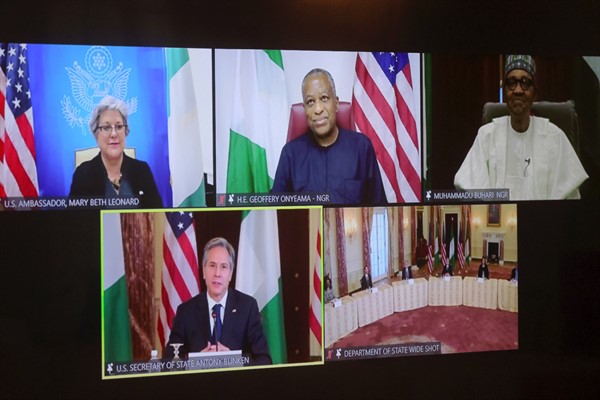U.S. President Joe Biden campaigned for the 2020 Democratic nomination promising not only to restore the defense of human rights and democracy to a central position in U.S. foreign policy, but also to “build back better” in the wake of the coronavirus pandemic. But for Africa’s 54 countries and 1.4 billion people, despite a welcome change in tone from the administration of former President Donald Trump, there is little to show for the first nine months of Biden’s presidency when it comes to engagement on values—or anything else of substance.
In his first foreign policy speech as president, Biden triumphantly declared that “America is back,” pledging that the U.S. would pursue “diplomacy rooted in America’s most cherished democratic values” by “defending freedom, championing opportunity, upholding universal rights, respecting the rule of law, and treating every person with dignity.”
Biden followed that up with some immediate gestures aimed at reassuring African countries that he would be true to his word. He immediately reversed immigration restrictions on Nigeria and other African countries imposed by Trump. He and U.S. Secretary of State Antony Blinken held calls with several of their African counterparts in the first few weeks of the new administration. In advance of the 34th African Union Summit in February, Biden sent a prerecorded message emphasizing Washington’s commitment “to rebuilding our partnerships around the world and re-engaging with international institutions like the African Union.” And his administration withdrew U.S. opposition to the candidacy of Ngozi Okonjo-Iweala—a two-time former Nigerian finance minister and former foreign minister—for director-general of the World Trade Organization.

